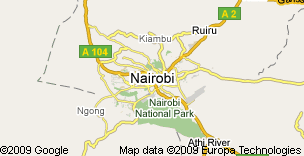Google hosted the latest skunkworks where the debate was how to design a better computer science curriculum. Present were a team from the Google EngEDU (Engineering Education) which works with campuses to mould student skills that will enable them to adapt to a work environment at Google, and through continuous learning within Google that feeds back into universities through training.
Present was a nice mix of professionals, programmers, coders, Google, who were ex-students of Nairobi, Kenyatta, JKUAT, Strathmore and other foreign universities.
So what ails the Kenyan computing curriculum?
– Universities are large factories, that focus on quantity (of students) not quality (of learning) to support their income streams
– Lecturers are lazy (don’t want to teach new concepts or learn new developments), instead they spend more time outside, on more lucrative consultancies
– Students are programmed to (cram) pass exams, obtain degrees and gain employment. Few are inspired to learn outside, or become developers. They accept poor learning, without challenge, and will riot over food but not poor lectures
– Engineering/ computer science curriculums are static, have not changed in years. It is difficult to change the curriculum as it involves all departments of university, and even consultation with the Government (for public universities)
– There is little research and publishing at universities
– There was an unresolved debate of why JKUAT is a ‘better’ institution for technology programs than Nairobi University which has more resources and ‘better’ lecturers
What can be done?
– Teach children more computer/programming skills (in high school) before university
– Universities should be encouraged to compete more with each other
– Corporations should establish mentorship programs
– More programming languages should be taught, even at schools e.g. python, .net, ruby, java, not just C++ and Visual Basic.
– Engineering students remain highly employable in other sectors like accounts and audit
What else is happening?
– Google now has a director for education for Africa (A sign of better things to come)
– South Africa has signed up to link with TEAMS (submarine cable), and Governments now recognize that skills shortage is the next critical area to address after bandwidth
– Google will be working with Strathmore, Nairobi, JKUAT and with other universities on design of better computer science curriculum.
elsewhere
Safaricom University: the latest Safaricom Options magazine talks about a corporate learning & development initiative the company has with Moi University that began in October 2006. Safaricom helps design the electrical engineering curriculum at the University to produce competent engineers with skills that are useable by Safaricom, with the top performing telecommunication bachelor of engineering students, currently in first and second year, eligible to be offered attachment places at Safaricom. The collaboration is next targeting a master’s telecommunications program (to be based in Nairobi). More on Moi and JKUAT collaborations.
Universities need Change: A very timely post this week from Gukira on the difficulty of doing research from a technological standpoint at Nairobi University. For one who is used to the research recourses available at a US university, Kenyan universities are rather close-minded about IT access to research students’ e.g.
– Internet resources are lamentably bad
– Printing costs are exorbitant.
– Could not get into the library could not even apply to get into the library
– Faculty members teach ridiculously high loads
Read more
Multimedia University: The Government has gazetted the establishment of the Multimedia University College of Kenya, formerly Kenya College of Communications Technology (KCCT)
Multimedia Cows: Over the weekend, I heard about Michigan State University research program with Maasai pastoralists – where they used GPS to track the movement of cattle and their grazing patterns to help pastoralists find pasture for their cattle easier, and by having to walk shorter distances.
University Blog: Diary of a Kenyan Campus Girl is a great read about university life by a female student studying computer science at JKUAT.
